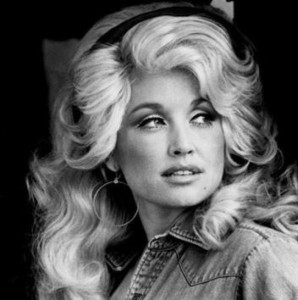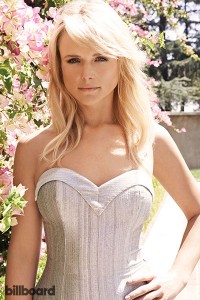 Two weekends ago I was astounded to find that an old friend had stopped in town for Halloween and so we met up for lunch on Sunday afternoon. We somehow started talking about country music and I told her about my Rhetoric of Country Music class and she told me she wished she was in our class. And we continued to talk about country music and what we like, who we like, and why like it. As I listened to her I got lost in her pretty blue eyes and wondered what it would be like for a girl like her to be country music artist. I know this all sounds a little stupid but i thought more and more of what it might be like in a day of the life of a female country music artist. I feel as though i reached a few conclusions.
Two weekends ago I was astounded to find that an old friend had stopped in town for Halloween and so we met up for lunch on Sunday afternoon. We somehow started talking about country music and I told her about my Rhetoric of Country Music class and she told me she wished she was in our class. And we continued to talk about country music and what we like, who we like, and why like it. As I listened to her I got lost in her pretty blue eyes and wondered what it would be like for a girl like her to be country music artist. I know this all sounds a little stupid but i thought more and more of what it might be like in a day of the life of a female country music artist. I feel as though i reached a few conclusions.
Women have traditionally been excluded from country music because the music industry in general up until the 1970’s was a boys club. But with the emergence of women like Tammy Wynette, Loretta Lynn, and Dolly Parton women gained some momentum in the country music scene. They defined the role of women in country music at the time but there was certainly much progress to be made. Another influential female country music artist was Sammi Smith, who was a part of the Outlaw country movement in the 70’s. These women opened a door into the world of the country music industry that couldn’t have been opened without very strong personalities and a very carefully crafted deliveries.
Today you see female artists such as the Dixie Chicks, Alison Krauss, Carrie Underwood, Miranda Lambert, etc. They all seem to draw from the inspirational careers of the women mentioned above. Women have come a very long way in the music industry in general but specifically there is much more credit given to the prominent women of country music. There is a loud voice within country music and she’s fighting for even more say. The demographic that country music serves is a traditional group but a shift is coming as women gain more say in every facet of our lives.
 Furthermore, female country singers seem to have very strong voices. Carrie Underwood, Kimberly Perry of The Band Perry, Hillary Scott of Lady Antebellum, and Miranda Lambert are all great examples of women that have some very powerful voices present both in and outside of the recording studio. Popular among some of these female artists are songs centered around anger and frustration and they let that be known in their music. The popular phrase “Hell hath no fury like a woman’s scorn” rings true in the voices of these prominent women.
Furthermore, female country singers seem to have very strong voices. Carrie Underwood, Kimberly Perry of The Band Perry, Hillary Scott of Lady Antebellum, and Miranda Lambert are all great examples of women that have some very powerful voices present both in and outside of the recording studio. Popular among some of these female artists are songs centered around anger and frustration and they let that be known in their music. The popular phrase “Hell hath no fury like a woman’s scorn” rings true in the voices of these prominent women.
They are a force to be reckoned with in the future and the men of the country music industry will have to step aside as women gain a more prominent role in the country music industry. I will observe with interest and and an open mindedness to see how the women of country music will prevail.

I think this is a very interesting post! I like how you focused on the women of country music because as you mentioned, most people associate country music with men. I agree that most women in country music have a very strong voice, starting with Dolly Parton. I am a huge country music fan, however I am picky about women’s voices in country music. Sometimes I feel as if they try too hard to be “twangy” and have a country accent. But at the end of the day I only listen to country music and I catch myself singing along to all of the women you mentioned!
I loved reading what you had to say about women in country music, Michael! I agree with you about how powerful their voices are. Lately I have been listening to female singers more than usual because I have taken a liking to their voices. In my opinion, I think Carrie Underwood has one of the most powerful voices in country music. The way she can belt it out is amazing to me! I personally am not a big fan of Miranda Lambert, but I agree with you about Dolly Parton and Carrie Underwood and the impact they have made on country music. Some other female singers that I think could fall under the category of powerful female country singers could be Sheryl Crow and Faith Hill.
Haha. Mikey, I love that you have written a post inspired by a girl’s “pretty blue eyes.” Although you’re right that it’s easier for a woman to be a country singer now than it was before the 1970s, I think on a day to day basis there are still a number of struggles that female performers have to face. For one, there is still a particular way that women are supposed to “look,” and when they stop being traditionally “sexy,” they tend to fall out of sight. Reba is a kind of exception, but I think she has kept herself relevant by becoming a TV star. Otherwise, I don’t think a single female singer from the 1980s or early 90’s is still played on the radio. George Strait, Alan Jackson, and Garth Brooks all still show up from time to time, but what about Rosanne Cash, Mary Chapin Carpenter, Emmylou Harris, Kathy Mattea, Wynonna, or Pam Tillis? Meanwhile, Miranda Lambert won more awards than any other artist at this year’s CMA ceremony, yet the “Entertainer of the Year” went to Luke Bryan. In the history of the CMAs, only a handful of women have won that award, and in the last decade the only one to do so is Taylor Swift. There’s still a glass ceiling to be broken.
I really enjoyed reading this Michael. It’s actually a good timing for me because I just did my final project about female voices and empowerment in country music. I agree that women nowadays have strong opinions and it is reflected in so many artists now, particularly in Miranda Lambert and Carrie Underwood. It is great that women are now more “accepted” into country music because now we don’t always have to listen to a man’s perspective on things. Now women might contradict what men say and try to stand up for themselves. I think that is what I like so much about female country artists.
Mikey, I really enjoyed your post about women in country music. Miranda Lambert is one of my most favorite female country singers ever! I feel like I can relate to a lot of her songs and I love her rebellious spirit! When talking about powerful voices though, I feel like Carrie Underwood wins that one. I definitely agree that women are more accepted in country music today compared to the 70s. However, I may actually be guilty of preferring male country music over female country music. I love a few girl songs thrown in my playlist but a majority of my music is male country.